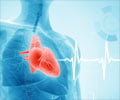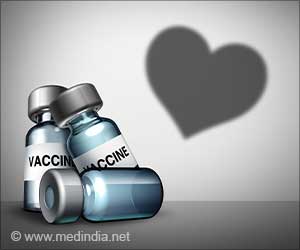
‘The combination of COVID-19 and atrial arrhythmias may create a pathologic synergy that markedly increases the risk for major adverse cardiac events and death.’
Read More..Tweet it Now
This study reviewed the prevalence and outcomes of hospitalized COVID-19 patients with atrial fibrillation and atrial flutter. Researchers reviewed medical records of 435* patients in the Yale Cardiovascular COVID Registry, who were adults, ages 18 and older (mean age 68.2 years; >50% were male) hospitalized between March and June 2020 in the Yale New Haven Health System. *Please note: This news release includes updated data compared to the abstract. Read More..
The data for the first 435 patients included in the registry revealed that 7.8% patients were diagnosed with atrial fibrillation/flutter for the first time in their lives, and 15.9% of the patients had a prior history of these types of arrhythmia. Overall, about one fifth of the patients had an episode of atrial fibrillation/flutter during hospitalization.
Additional analysis on the outcomes of the patients with atrial fibrillation/flutter showed that patients with a prior history of atrial fibrillation/flutter had a significantly higher risk of death or ICU mortality, independent of other health issues related to the heart, kidneys and lungs.
Data also indicated in-hospital atrial arrhythmias were significantly associated with even higher risk of death and ICU mortality, as well as multi-organ failure, such as respiratory failure and renal failure.
"Our study suggests that the combination of COVID-19 and atrial arrhythmias may create a pathologic synergy that markedly increases the risk for major adverse cardiac events and death," said Zaniar Ghazizadeh, M.D., a lead author of the study and an internal medicine resident at Yale New Haven Hospital/Yale School of Medicine in New Haven, Connecticut.
Advertisement
The researchers also cite the need for more investigation to understand the mechanisms of heart injury from COVID-19 infection and methods to prevent this complication.
Advertisement
There has been speculation that two types of medications used to treat high blood pressure and heart failure - angiotensin-converting enzyme (ACE) inhibitors and angiotensin-receptor blockers (ARBs) - may increase the risk of contracting COVID-19 .
The researchers examined MEDLINE and EMBASE databases for studies that detailed patients treated with ACE inhibitors and/or ARB medications. They conducted two meta-analyses to evaluate the results of 17 trials: 1) to investigate the rate of COVID-19 positive cases, and 2) to determine the death rate among those hospitalized with COVID-19.
Their analyses yielded these findings:
Patients taking ACE inhibitors or ARBs did not have an increased rate of COVID-19 infection; and Hospitalized COVID-19 patients taking ACE inhibitors or ARBs did not have an increased rate of death.
A sub-analysis was also done, focused on the studies including patients treated for hypertension. The results indicate taking ACE inhibitors and ARBs was associated with a lower death rate among hospitalized COVID-19 patients with a history of hypertension.
"Our study results confirm that patients already taking ACE inhibitors and ARBs should not discontinue taking them due to COVID-19 infection," said lead study author Yujiro Yokoyama, M.D., surgeon at St. Luke's University Health Network's Easton Hospital in Pennsylvania.
"Both medications have proven benefits for heart and kidney disease, and this further confirms previous findings that ACE inhibitors do not pose additional risk with COVID-19."
Early in the COVID-19 pandemic, the American Heart Association issued a joint statement with the Heart Failure Society of America and the American College of Cardiology to address the use of ACE inhibitors and ARB medications among patients at risk for developing COVID-19.
The recommendations called for the continuation of ACE-i or ARB medications among patients already taking them for indications such as heart failure, hypertension or ischemic heart disease.
Cardiovascular disease patients who are diagnosed with COVID-19 should be fully evaluated before adding or removing any treatments, and any changes to their treatment should be based on the latest scientific evidence and shared-decision making with their physician and health care team.
Source-Eurekalert












